Homeschooling a Twice Exceptional Child? What You Should Know…
Homeschooling a Twice Exceptional Child? What You Should Know ~
Written by Colleen Kessler of Raising Lifelong Learners
My homeschool doesn’t look much like anyone else’s I know.
It used to bother me a bit. Even as a gifted specialist who worked in gifted classrooms for years, I wasn’t prepared for how my own children’s giftedness would also include other diagnoses and challenges that make our homeschool an entirely different venture.
Homeschooling a twice exceptional child can be equal parts challenging and rewarding. Here’s why.
What Does Twice Exceptional Mean?
The term “twice exceptional” is used specifically in the context of education. The National Association For Gifted Children provides this overview:
“What’s not often well-known or well-understood is that students who are gifted may also have a special need or disability— just as students with disabilities may also be gifted. The term “twice-exceptional,” also referred to as “2e,” is used to describe gifted children who, have the characteristics of gifted students with the potential for high achievement and give evidence of one or more disabilities as defined by federal or state eligibility criteria. These disabilities may include specific learning disabilities (SpLD), speech and language disorders, emotional/behavioral disorders, physical disabilities, autism spectrum, or other impairments such as attention deficit hyperactivity disorder (ADHD).”
Because of the disparity between a child’s potential for high achievement and the area of disability, a learner might be completely advanced in one subject and three years behind in another.
They may be intellectually capable of solving complex physics problems, but struggle with the social skills required on the playground. This “asynchrony” is often the hallmark of gifted and twice exceptional learning.
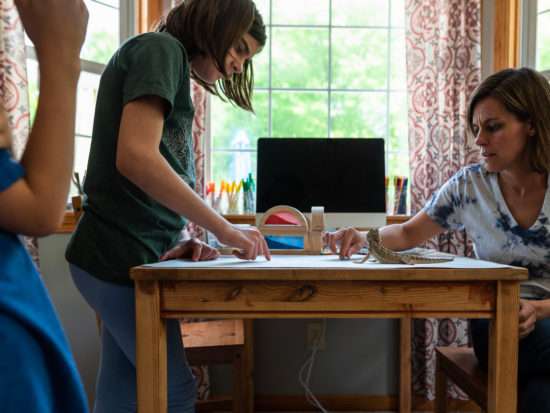
What It’s Really Like To Homeschool A Twice Exceptional Child
Based on this description, it seems like a given that our homeschool will necessarily flex according to my children’s asynchronous needs.
Our days often look like a jumbled mess of projects, social emotional learning, advanced math, and just about everything in between.
For example, this morning, my youngest decided to create his own game board. His big sister got involved as well while I encouraged (ahem) my older daughter to get going on her math. Later, all three of us hopped in the car for piano and voice lessons.
When I say we “hopped in the car” what I mean is we spent ten minutes finding and getting shoes on. Then it was another ten minutes helping one managing anxiety around the lesson.
For my twice exceptional homeschool, this all “counts” as education.
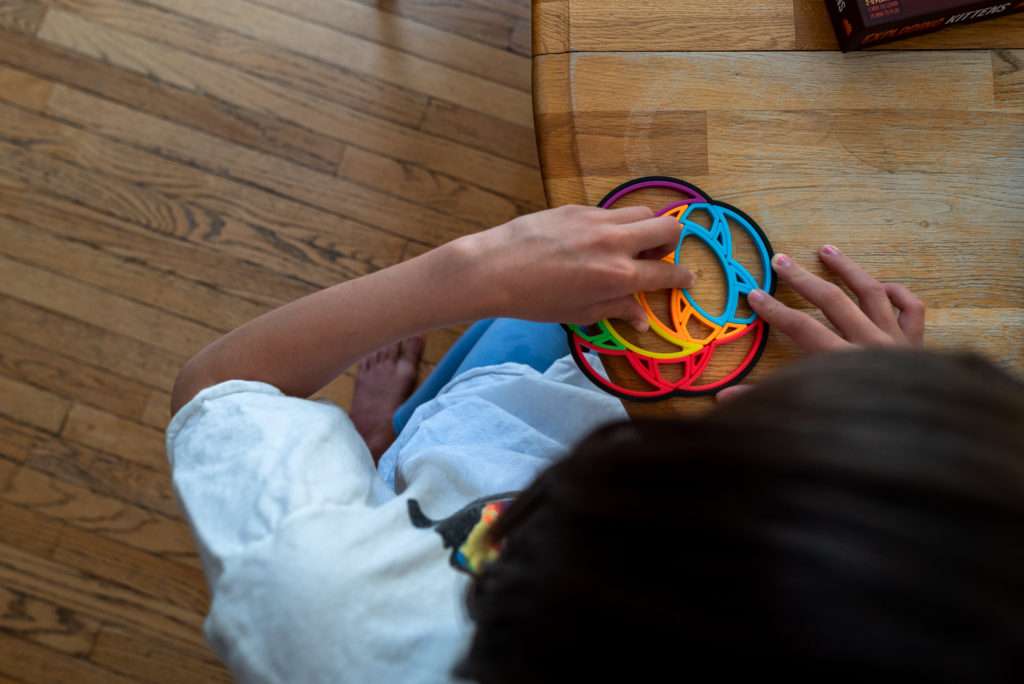
How Homeschooling Can Help Your Twice Exceptional Child
Children who are considered twice exceptional often struggle in traditional school environments. Although I worked with many wonderful and successful twice exceptional learners in my time in the classroom, I have come to believe that homeschooling is one of the best possible educational options for gifted and twice exceptional children.
Because their superior intellect can often mask their disabilities, their coping strategies and overall boredom can look more like the class clown creating chaos, or a “lazy” student avoiding his work.
In our homeschool setting, this is a non-issue. I know my children’s areas of giftedness and I know the challenges they face. All are equally important and a part of our learning.
I have a musically gifted child who spends time in and out of performances and music lessons. This giftedness is nurtured with time and exposure that would never be possible in a traditional school day.
By the same token, this child also struggles with intense sensory issues and anxiety. We fold hands-on sensory activities into most days. We have also devoted a significant amount of time to therapy and discussion around coping strategies to decrease anxiety.
Again, this level of time and attention to areas of struggle would not be possible in the confines of a traditional school day.
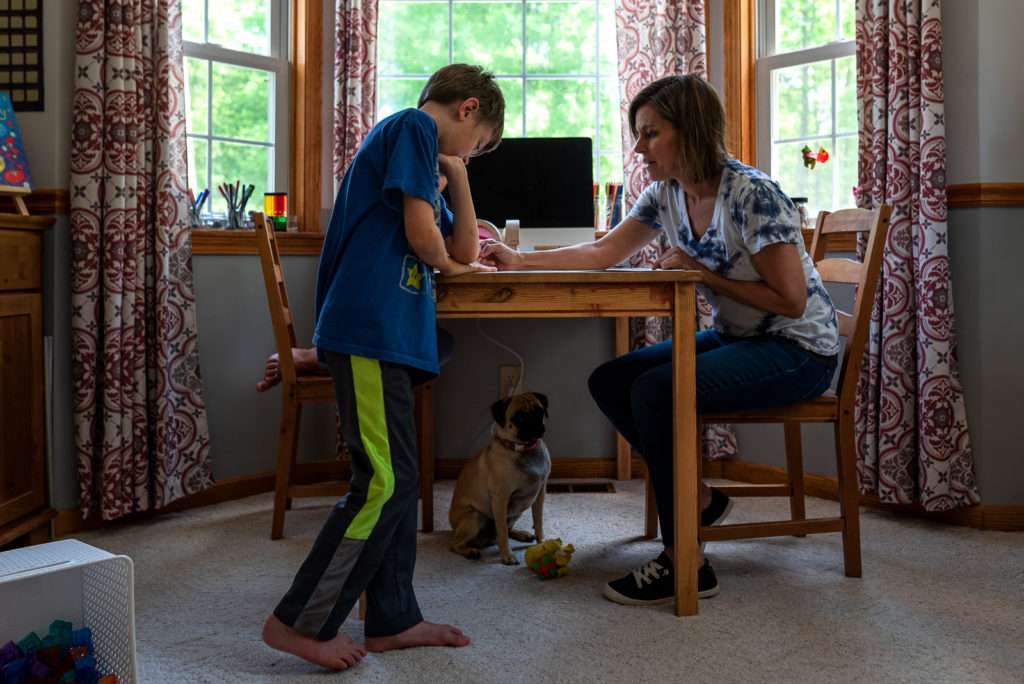
Homeschooling allows for a seamless emphasis on both the gifted areas of strength, and the focused attention on strengthening areas of concern. While I think this is true for all children, I believe it to be exponentially true for my kiddos and others like them.
If you are homeschooling a child with twice exceptionalities, I know it can be tough sometimes (especially wondering if school might somehow “do it better”).
Please, let me say, as someone who has been both in the school system and homeschooling side of education twice exceptional children, I wholeheartedly believe that homeschooling is the right choice to help your child learn.
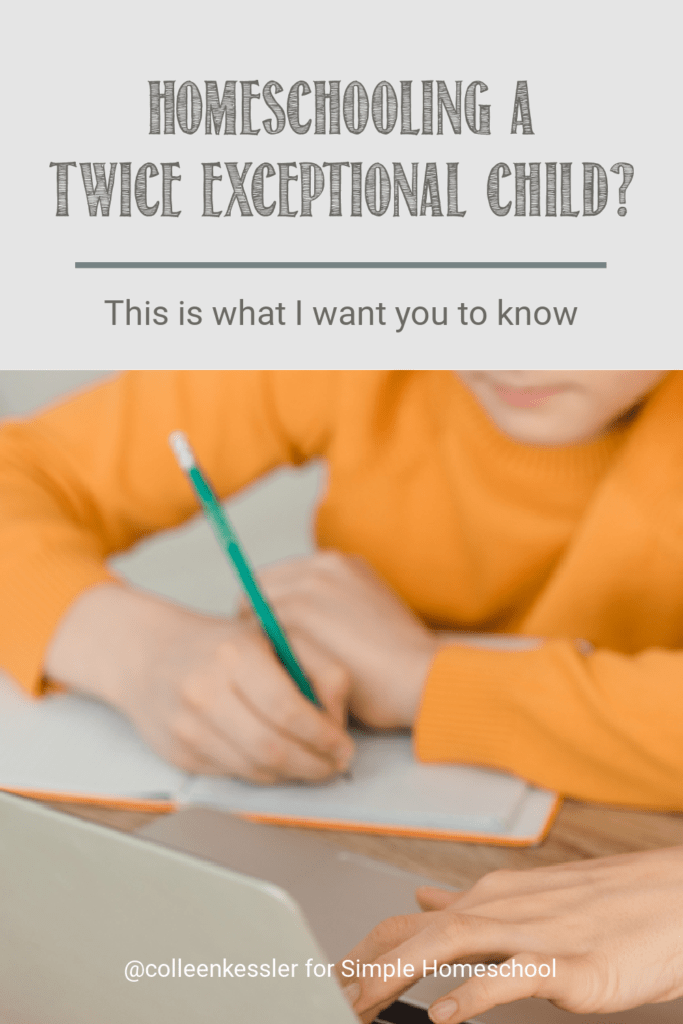
What’s Your Homeschool Mom Personality? Take Jamie’s quiz now and receive a free personality report to help you organize your homeschool based on what your personality type needs most!
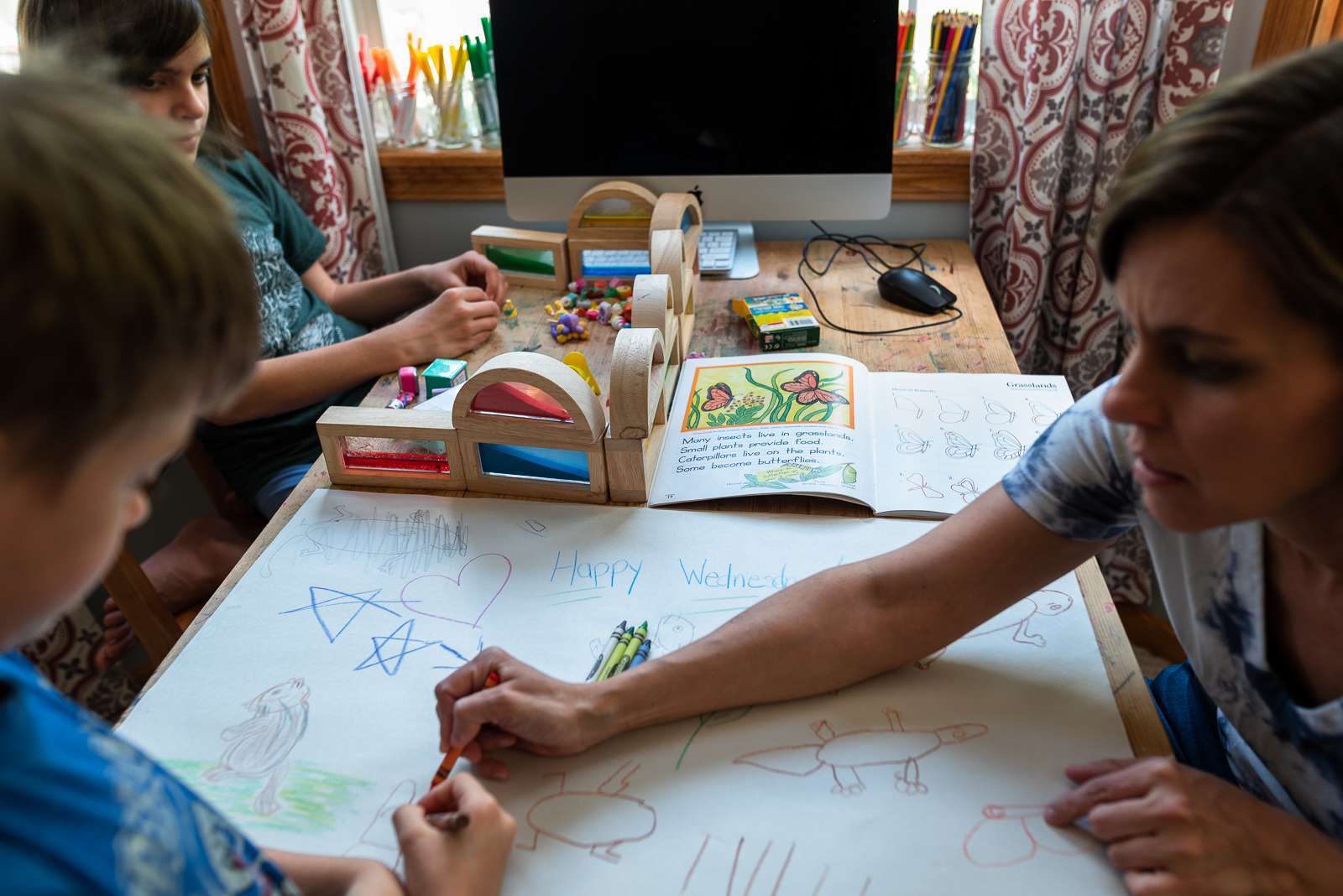

How do you handle the “need for routine” balanced with “life happens”? During the day aI homeschool, at night I run my family’s ESL school ministry. Sometimes (esp. Sept – Dec and again in May) these tend to overlap. Starting in the fall I have an hour and 15 minute commute to work 1-2 days a week.
My 6.5 year old is gifted with ADHD, and hypersensitivity. I got a true miracle and don’t have ADHD anymore, but the lifelong (bad) time management habits are proving hard to kick. I admit I’m struggling with this and have for several years in homeschool. The typical stay at home mom with neurotypical kids school day does not work for us. In fact, we have a homeschool classroom at my family’s school – we only “home” schooled at home during the pandemic because it doesn’t work well for us. In the fall we’ll have to find a way to make it work several days a week at home, because the commute will be too long.
I know this is a lot – I guess I was hoping you had an article or a link. I certainly don’t expect a personal answer to my ramble, but if you made it to the end it sure makes me feel like I’ve FINALLY talked to someone, ANYONE, who understands and doesn’t think “what’s the big deal? Buy a box curriculum, or sign up for online school and life’s a breeze.” Thanks for anything you can help with.
Hi Jillian! I completely understand how this is a “big deal” that affects you and yours deeply. It sounds like you are well on your way to figuring out what works and doesn’t work for you, but I think that Colleen’s personal site would have a treasure trove of resources specifically to meet you where you are: https://raisinglifelonglearners.com
And maybe taking a peek at some of Colleen’s past homeschool days in the life would be an encouragement? https://simplehomeschool.net/colleen2022/
I hope it’s a help and also reminds you that you aren’t alone in the struggle! Thanks for visiting!